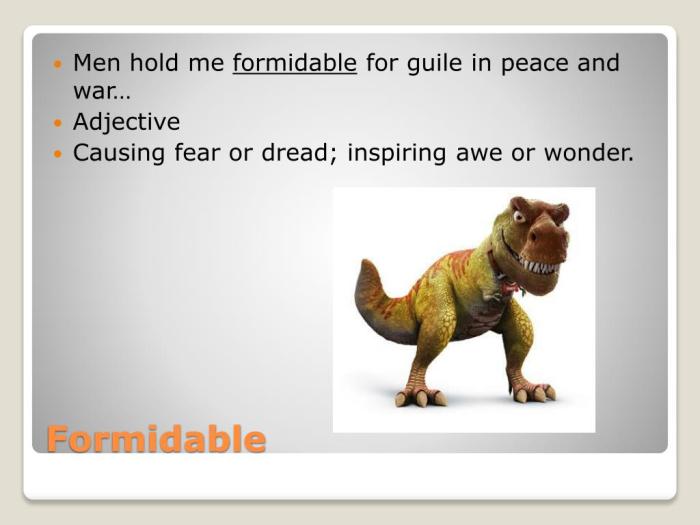Men Hold Me Formidable for Guile in Peace and War delves into the historical and cultural context that has shaped the perception of men as formidable for guile in both peace and war. It examines the different ways in which men have employed guile in peacetime and wartime settings, as well as the gendered nature of the perception of guile.
The essay analyzes the consequences of men’s use of guile, both positive and negative, and explores how the perception and use of guile have evolved in the modern era. It provides examples of famous battles, diplomatic maneuvers, and modern-day leaders where guile has been a factor.
Origins of Guile
The perception of men as formidable for guile in peace and war has deep historical roots. In ancient Greece, cunning and deception were considered essential qualities for both military and political leaders. Homer’s Iliad portrays Odysseus as the epitome of guile, using his wit and strategy to outsmart his enemies.
Similarly, in ancient China, the military strategist Sun Tzu emphasized the importance of deception and subterfuge in warfare.
Cultural influences also shaped the perception of guile. In many societies, men were expected to be strong, assertive, and dominant. This masculine ideal often included the ability to deceive and outmaneuver others, especially in situations where direct confrontation was not feasible or desirable.
Throughout history, countless examples illustrate the use of guile by men in both peace and war. Julius Caesar’s feigned retreat at the Battle of Pharsalus allowed him to draw Pompey’s forces into a trap. The Trojan Horse was a classic example of guile in warfare, where the Greeks used deception to infiltrate the city of Troy and secure victory.
Manifestations of Guile

Men have employed guile in various ways throughout history. In peacetime settings, guile can manifest as diplomacy, negotiation, and persuasion. Diplomats use guile to achieve favorable outcomes for their countries, often through deception, misdirection, and the manipulation of information.
In wartime, guile takes on a more sinister form, often involving espionage, sabotage, and psychological warfare. Spies infiltrate enemy territories to gather intelligence, while saboteurs disrupt enemy operations. Psychological warfare aims to demoralize and confuse the enemy, making them more vulnerable to defeat.
Examples of famous battles where guile played a significant role include the Battle of Cannae, where Hannibal’s Carthaginian forces used a feigned retreat to trap and annihilate the Roman army. In World War II, the Allies employed deception and misinformation to mislead the Germans about the timing and location of the D-Day landings.
Gender and Guile
The perception of guile is strongly gendered, with men being historically associated with guile more so than women. This is partly due to the traditional masculine ideal, which emphasizes strength, dominance, and the ability to deceive and outmaneuver others.
Cultural and societal factors have also influenced the gendered nature of guile. In many societies, women have been discouraged from engaging in activities that require deception or manipulation. This has led to a perception that women are less capable of guile than men.
However, it is important to note that women have also used guile throughout history, albeit in less recognized or documented ways. Female spies, diplomats, and military leaders have often employed guile to achieve their goals, challenging the traditional gendered perception of guile.
Consequences of Guile: Men Hold Me Formidable For Guile In Peace And War

The use of guile can have both positive and negative consequences. On the one hand, guile can be a powerful tool for achieving desired outcomes, whether in peace or war. It can allow individuals and groups to outmaneuver their opponents, secure favorable terms, and protect their interests.
On the other hand, guile can also lead to negative consequences. When used for malicious or unethical purposes, guile can undermine trust, damage relationships, and even lead to violence or war. It is important to use guile responsibly and ethically, considering the potential consequences of one’s actions.
Throughout history, guile has played a significant role in shaping the course of events. For example, the use of guile by the British during the American Revolutionary War contributed to the eventual defeat of the American colonies. Similarly, the use of guile by the Nazis during World War II led to the Holocaust and the deaths of millions of people.
Modern Applications of Guile

The perception and use of guile have evolved in the modern era. While guile is still employed in peace and war contexts, it has taken on new forms and manifestations. In the digital age, cyber deception and misinformation have become powerful tools for manipulating public opinion and influencing political outcomes.
In the realm of business, guile is often used in negotiation, marketing, and sales. Companies use various strategies to outmaneuver their competitors and gain an advantage in the marketplace. Guile can also be employed in diplomacy and international relations, where nations use deception and misinformation to achieve their foreign policy objectives.
Examples of modern-day leaders who have employed guile include Vladimir Putin, who has used cyber deception and misinformation to influence elections and expand Russian influence. In the business world, Elon Musk has used guile to promote his companies and outmaneuver his competitors.
Key Questions Answered
What is guile?
Guile is a form of deception that involves using cunning and craftiness to achieve one’s goals. It can be used in both positive and negative ways, and is often associated with intelligence and strategic thinking.
Why have men been historically associated with guile more than women?
There are a number of reasons why men have been historically associated with guile more than women. One reason is that men have traditionally been seen as the more aggressive and dominant sex, and guile is often seen as a tool of aggression and dominance.
Another reason is that women have been traditionally seen as the more emotional and nurturing sex, and guile is often seen as a cold and calculating trait.
What are some of the positive consequences of men’s use of guile?
Guile can be used to achieve a variety of positive outcomes, such as winning battles, negotiating peace treaties, and outwitting opponents. It can also be used to protect oneself from harm or to gain an advantage in a competitive situation.
What are some of the negative consequences of men’s use of guile?
Guile can also be used to achieve negative outcomes, such as cheating, lying, and stealing. It can also be used to manipulate others or to gain power over them.